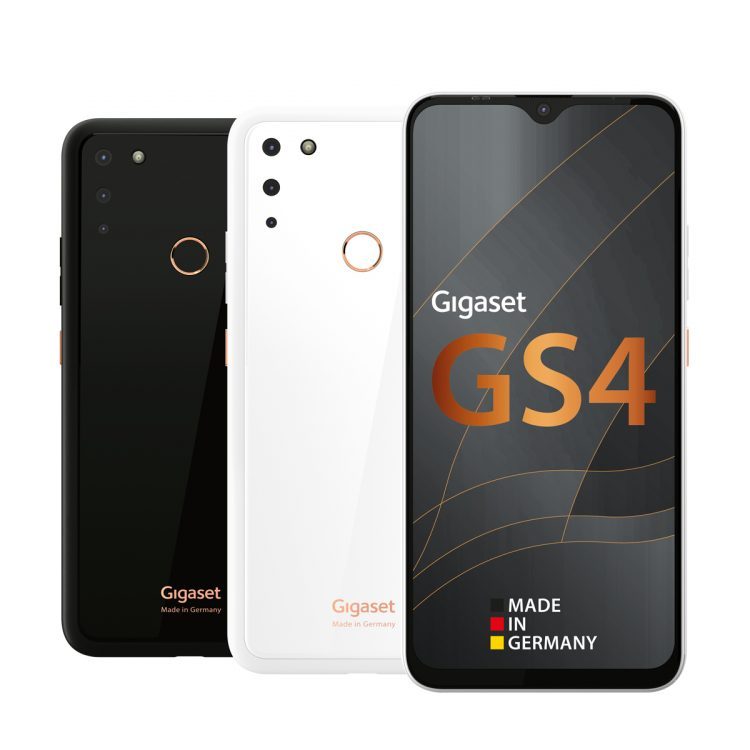
Business Telephony: “Made in Germany” as a unique selling point
1. December 2020 Published by Raphael DoerrThis post on Business Telephony was published on LinkedIn on November 13, 2020 by Anne Dickau. The post can be viewed, liked or shared at this link.
Business Telephony: Spoilt for choice
The global market for phone manufacturers is large. Customers can choose from a host of providers worldwide and thousands of phone models – what may seem almost overwhelming to some people. How can you find the right solution in this jungle of options? More and more often, too much complexity leads to less than ideal decisions, which is a risk, especially in the business telephony sector.
Endless comparisons of the value for money would be one solution, but it’s usually the gut feeling that determines the purchase decision, or, to put it another way, the customer’s trust in the brand. This trust is given to a particular manufacturer or its brand, naturally with the expectation that both service and product keep their promises of performance and lasting value. But herein lies the crux: No manufacturer will, of course, willingly admit that their own product is of poor quality, and transparency is not writ large either by every provider. Responsibility for purchasing a valuable product, also in business telephony, therefore usually ends up back with the buyer.
“Made in Germany” – seal of approval with a history
There are exceptions that have proven their worth. The “Made in Germany” seal of approval is one of them. Nowadays, this trademark is somewhat akin to a label of distinction and evokes particular ideas of quality among consumers all over the world. “Made in Germany” associates certain technical standards with Germany as the country of origin, such as a high-quality finish, generally good quality, and the safety of the materials used. But that wasn’t always the case. At the end of the 19th century, “Made in Germany” was a warning to British customers that although the product offered was cheaper than the English product, it came from Germany and was therefore of poor quality. However, this British marketing plan turned into a failure: Thanks to the “Made in Germany” seal, many buyers then recognized which products were from ‘Germany’ and that they were by no means inferior. That’s how the image shift of the “Made in Germany” certificate came about and ended up being understood as an indication of good quality.
Sought-after trademark
Ever since “Made in Germany” has been perceived as positive across the board, there have been repeated attempts at fraud in which the seal also appears on products that are demonstrably neither of good quality, nor were necessarily produced in Germany. Since the aim here is to deliberately sell the customer a product with an inapplicable goods standard, infringements in Germany are legally punished as misleading. Since “Made in Germany” is basically subject to a series of admissibility requirements, and a product is only allowed to bear the seal “if those production steps are carried out in Germany that substantiate the properties of the product which matter most to customers and are therefore ‘essential’”[1]. A significant part of the value added must accordingly be generated in Germany.
Deservedly distinguished: Gigaset as a German quality brand
Back to telephony business: Close attention is also paid here to the validity of the quality seal. Gigaset is not only able to meet all the admissibility requirements, but also to impress with its longstanding German success story.
Gigaset has been producing at the German location in Bocholt since as far back as 1941. Here, around 500 employees design and manufacture innovative phones, smart home systems, scalable telecommunications systems, cordless IP phones and, since 2018, also a continuously growing portfolio of smartphones. Our products are then sent out from Bocholt to all over the world.
That makes Gigaset the only European or German telecommunications company to also produce almost all its products in Germany. For this constancy, we received the special award of “German Traditional Brand” in 2019 and can rightly recognize our business success as “Made in Germany”. As the first manufacturer of smartphones in Germany, we also sustainably developed the topic of innovation in the manufacturing and processing industries in 2018 by enhancing it through Industry 4.0 mechanisms. With this unique selling point and the proven intrinsic value of our brand, Gigaset distinguishes itself as a strong brand both in the German and the global telecommunications sector. An exciting summary of what “Made in Germany” means for us can be found here.
[1] https://www.it-recht-kanzlei.de/made-in-germany.html#:~:text=Grunds%C3%A4tzlich%20darf%20ein%20Erzeugnis%20nur,und%20mithin%20%E2%80%9Ewesentlich%E2%80%9C%20sind
 Comments
Comments
 en
en 







